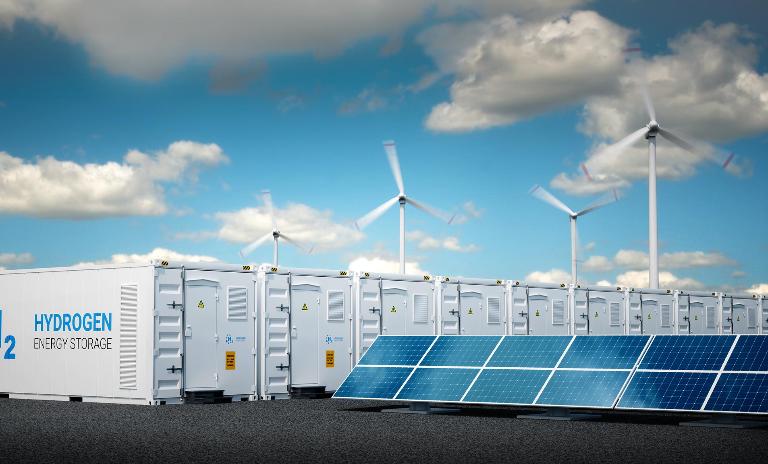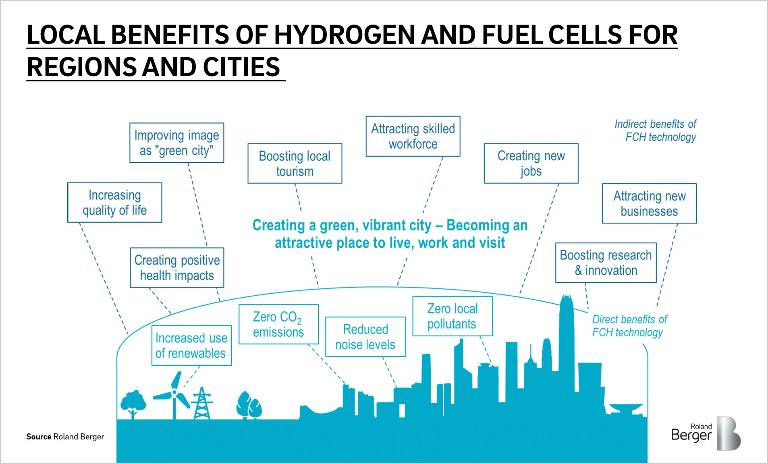In many places, urban mobility is at a crossroads: Public transport operators and policymakers around the globe are facing same challenges such as the advent of autonomous vehicles and need new strategies and ideas. In order to assess the biggest challenges of tomorrow's public transport, we derived likely future scenarios as well as courses of action for parties involved at the example of Germany.
European cities bet on hydrogen fuel cells to help meet emission targets
![{[downloads[language].preview]}](https://www.rolandberger.com/publications/publication_image/roland_berger_450_fuel_cells_and_hydro_power_cover_2_download_preview.jpg)
Shaping the green energy transition now: Hydrogen fuel cells play a key role in helping cities meet emission targets.









